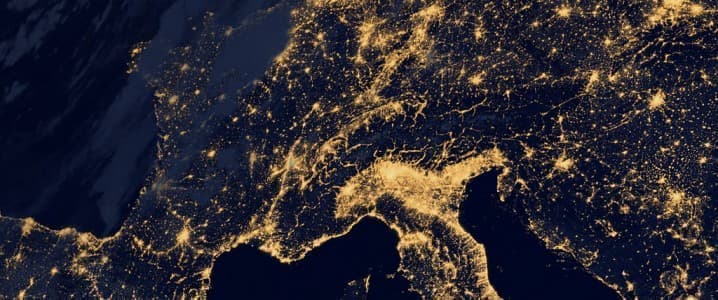In the wake of the global race to reduce emissions, EU countries are struggling to implement a coherent policy approach or to align their actions with the high-minded rhetoric. While Denmark is banning offshore oil and gas leases in its quest to cease production in the Danish sector of the North Sea by 2050, it has also granted passage through its offshore waters for the Nord Stream 2 pipeline. A pipeline that is reportedly back on track to annually transport over 50 billion cubic feet of gas from Russia to Germany. In France, Engie has halted its gas imports from the U.S. but is heavily involved in the Nord Stream 2 project. Meanwhile, Romania is installing an underwater pipeline in the EU’s portion of the Black Sea to transport gas to its shore. Such a division between policies and actions within the EU could threaten to undermine the message of the Paris Accord.
EU and Global Oil
Despite being the largest oil producer in the EU, Denmark’s decision to cease production will have a limited impact on global oil markets as the country only produced 103,000 barrels per day (kbpd) in 2019. This output falls well short of even just Germany’s oil consumption, which came in at 2.4 million barrels per day (mbpd) in 2019, per the EIA. Simply put, all 27 members of the EU, in a best-case scenario, would have to produce 100 kbpd (mirroring Denmark’s oil production) to meet Germany’s oil demand. And in this scenario, only 3.0 kbpd would be available for the remaining EU countries. Furthermore, 71% of the world’s oil is produced by 10 non-EU countries, which accounted for a total output of 71.73 mbpd in 2019, per the EIA.
Related Video: Texas Deep Freeze Takes 1.2 Million BPD of Crude Offline
Russia’s Piped Gas and U.S. LNG
Nord Stream 2, arguably the most geopolitically sensitive energy project in modern history, looks to be nearing completion with Rolf Muetzenich, a German politician, remarking that Germany is prepared “for a ‘hard confrontation’ to defend its interests in the project that will increase gas supplies from Russia.” Meanwhile, Engie, a French company, is providing financial backing for the project. Engie was also pursuing the importation of Liquefied Natural Gas (LNG) from the U.S., but France decided to cancel that project, terminating a 20-year deal valued at $7 billion. If France had not canceled said project, it would have made the country a promoter of fracking. This is due to the fact that in 2019, Texas - where much of the fracking in the U.S. occurs - was the No. 1 natural gas producing state in the country.
EU Pursuing Offshore in the Black Sea
In 2019, Romania, via the Black Sea Oil and Gas company, made a Final Investment Decision of $400 million for the Midia Gas Development, located in Romania’s offshore waters in the Black Sea. The project is expected to reach first production by 2021. Following the pipeline’s inauguration Ludovic Orban, the country’s Prime Minister, remarked “Today we mark one of Romania’s most important strides forward in developing its Black Sea natural gas resources…it also marks an important step toward achieving energy security for Europe.” Thus, Romania and Germany are both installing underwater pipelines to ensure gas is transported to their respective shores: the former will do so by obtaining gas that derives from its territorial waters, while the latter will import from a non-EU country by way of Russia. To add to the complexity, the EU is now looking to enforce investment restrictions for gas projects.
The Energy Transition Continuum
The path towards decarbonization is not entirely aligned in the EU, as different countries are all approaching the issue with differing degrees of urgency. Some countries have voiced policy support but continue to lean heavily on oil and gas with their actions. The actions of Germany, France and Romania could well impact the message and effectiveness of the Paris Accord. Without a concentrated and centralized effort which focuses on action rather than words, the EU is going to fall well short of its Net Zero ambitions.
NOTE: The article refers to 2019 data at certain points, as updated data for 2020 is not presently available.
By Fernando C. Hernandez
More Top Reads From Oilprice.com:
- Is This Oil Rally The Start Of Something Much Bigger?
- Texas Winter Storm Highlights The Importance Of Fossil Fuels
- What The Media Isn’t Telling You About Texas Blackouts

















